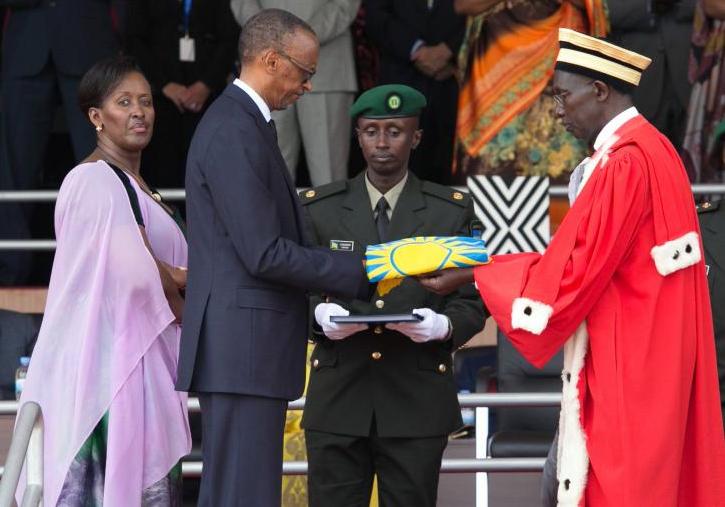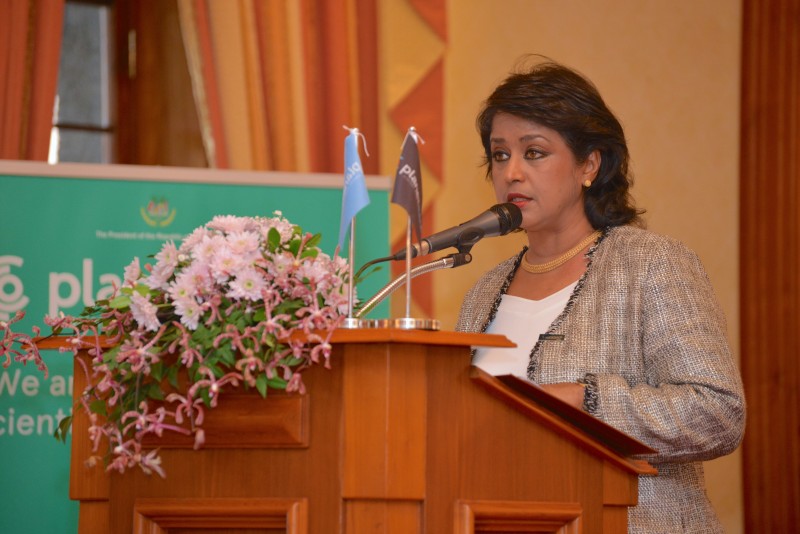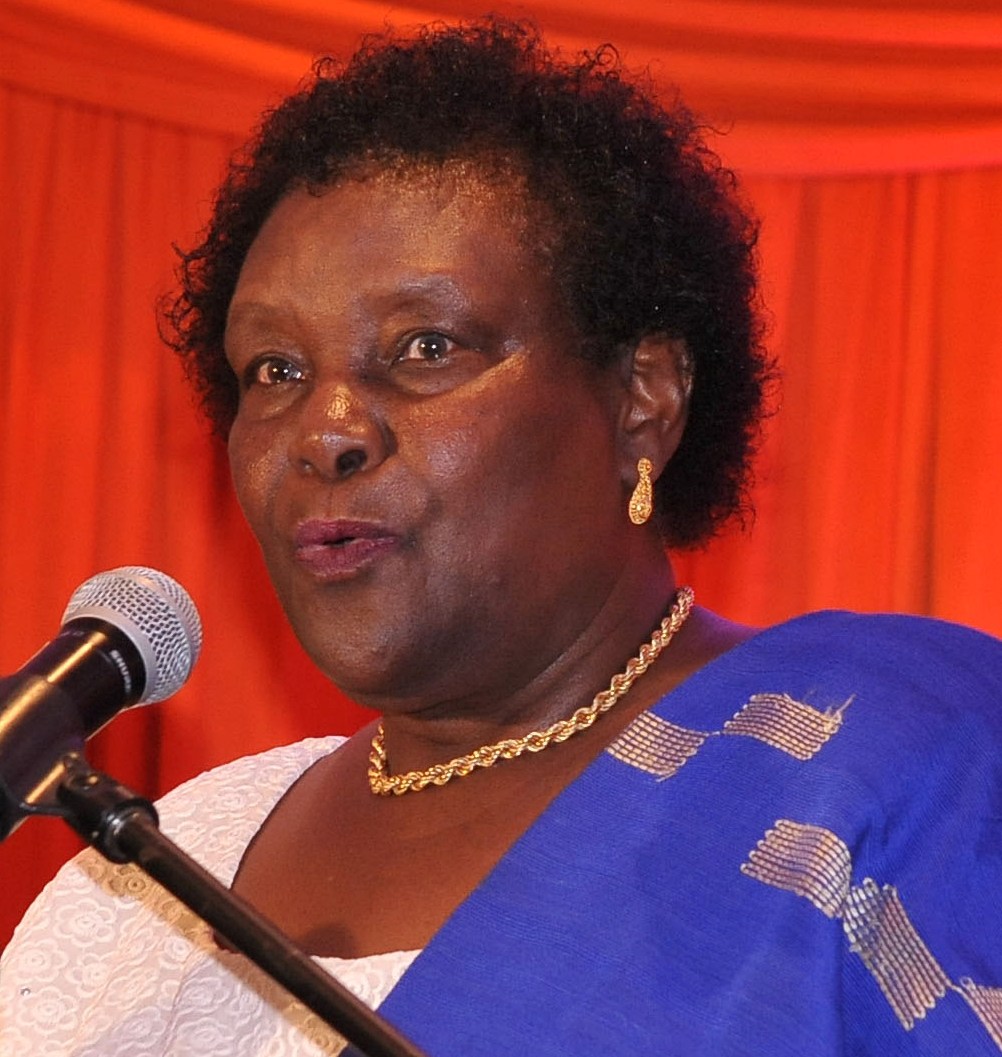By Abdi Ali
Published August 18, 2017
 As Paul Kagame was sworn in for a seven-year-term as President of Rwanda on August 18, 2017, a human rights organisation described the polls that took place on August 4, 2017 as having taken ‘place in a context of very limited free speech or open political space’.
As Paul Kagame was sworn in for a seven-year-term as President of Rwanda on August 18, 2017, a human rights organisation described the polls that took place on August 4, 2017 as having taken ‘place in a context of very limited free speech or open political space’.
Human Rights Watch released what it termed as ‘a chronology of violations of the right to freedom of expression, association, and assembly in Rwanda between the country’s December 2015 referendum – allowing the president to run for a third term – and the election, which Kagame won with a reported 98.79% of the vote’.
“Kagame’s landslide win came as no surprise in a context in which Rwandans who have dared raise their voices or challenge the status quo have been arrested, forcibly disappeared, or killed, independent media have been muzzled, and intimidation has silenced groups working on civil rights or free speech,” said Ida Sawyer, Central Africa director at Human Rights Watch. “Yet the Rwandan authorities took no chances with the presidential vote, as repression continued in recent months despite the weak prospects for any opposition candidate.”
RELATED:Film Festival Demands Justice for All Humanity
The rights body said it had spoken with local activists and private citizens who had spoken of ‘intimidation and irregularities in both the lead-up to the election and during the voting’.
In Rutsiro district in Western Province, for instance, HRW says a voter told them that “donations to the ruling Rwandan Patriotic Front (RPF) were mandatory” and that “Nobody could escape this order [that] was organized through the National Electoral Commission.”
 A person monitoring the vote in Nyamagabe District in the south, HRW says, said he saw voting officials sign ballots for at least 200 people who did not show up to vote. All the votes went to the RPF.
A person monitoring the vote in Nyamagabe District in the south, HRW says, said he saw voting officials sign ballots for at least 200 people who did not show up to vote. All the votes went to the RPF.
HRW says Frank Habineza of Democratic Green Party of Rwanda (DGPR) and an independent candidate called Philippe Mpayimana who contested the elections against Kagame said they experienced harassment, threats, and intimidation after announcing their candidacy. While Mpayimana won 0.73% of the vote, Habineza made away with 0.48%.
RELATED:Ugandan Authorities Suppress Civil Liberties
Two other would-be independent candidates, Diana Rwigara and Gilbert Mwenedata, said that they had fulfilled eligibility requirements of 600 signatures supporting their candidacy, including 12 from each of the 30 districts. But the National Electoral Commission rejected their efforts to register, claiming that many of the signatures were invalid. Another potential candidate, Thomas Nahimana, a Catholic prelate turned politician, was denied access to Rwanda in January when he tried to enter from France, where he now lives.
A person who monitored the campaign in Musanze, Burera, and Rulindo districts, in the Northern Province, HRW says, said that local security forces went door-to-door in various neighborhoods before the vote, telling people not to participate in Habineza’s campaign rallies.
According to HRW, Kagame himself had boasted that the election results were already known during a campaign rally in Ruhango district in Southern Province in mid-July 2017.
“I am very pleased because we are already aware of the results of the elections,” HRW quotes Kagame as having said. “Anyone who says that results are not known is lying. The results were already known since December 2015.”
RELATED:Impunity Puts Human Rights Defenders at Risk
In the period between the controversial referendum in December 2015 and the August 2017 presidential elections, HRW says it documented what it calls ‘an ongoing pattern of harassment, arrests, and detention of opposition party leaders and supporters, activists, and journalists. Several were forcibly disappeared or prosecuted after making comments critical of the current government or ruling party’.
The revised constitution, among other things, reduces presidential terms to five years, renewable only once, after a transitional seven-year term starting in 2017. It also reset the clock on presidential terms already served. It allowed Kagame to run for a third seven-year term in 2017 and will allow him to run for two five-year terms, in 2024 and 2029, opening the possibility of extending his rule until 2034.
“Rwanda’s donors and partners should take a stronger stance against the government’s many measures to clamp down on free expression and quash dissent, and make clear that there will be consequences,” Sawyer said. “While the country has made remarkable economic and development progress since the genocide that devastated the country in 1994, it should not come at the cost of the Rwandan people’s most fundamental freedoms.”
RELATED:Rights Bodies Fault Police on the Use of Excessive Force




